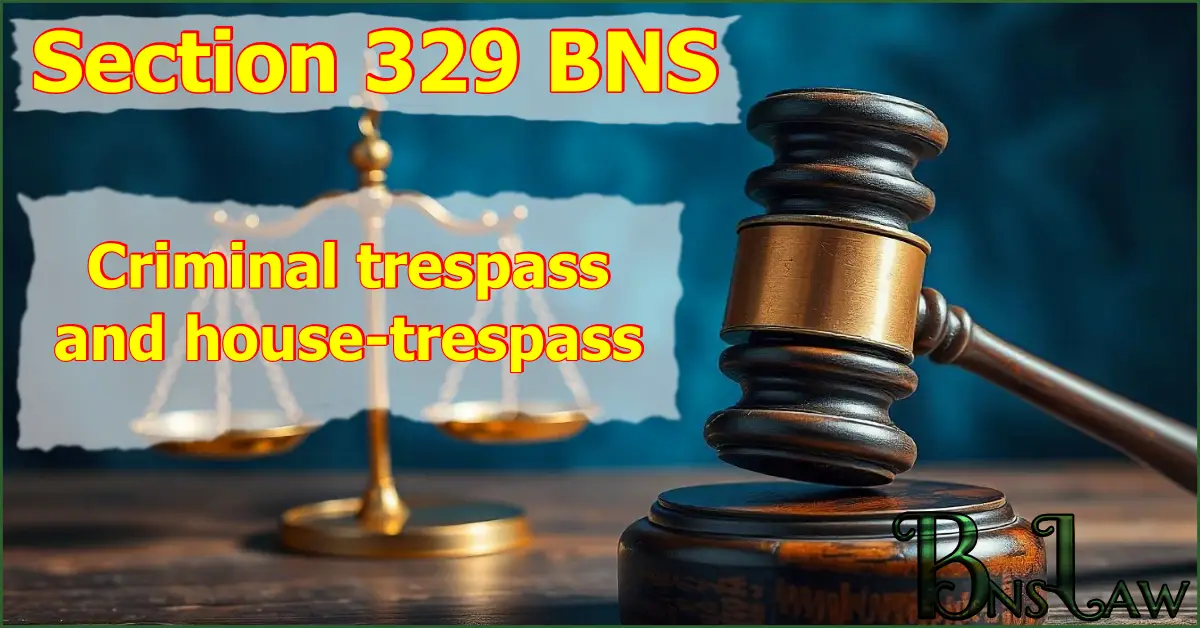Section 329 BNS | BNS 329
329(1) BNS
Whoever enters into or upon property in the possession of another with intent to commit an offence or to intimidate, insult or annoy any person in possession of such property or having lawfully entered into or upon such property, unlawfully remains there with intent thereby to intimidate, insult or annoy any such person or with intent to commit an offence is said to commit criminal trespass.
329(2) BNS
Whoever commits criminal trespass by entering into or remaining in any building, tent or vessel used as a human dwelling or any building used as a place for worship, or as a place for the custody of property, is said to commit house-trespass.
Explanation— The introduction of any part of the criminal trespasser’s body is entering sufficient to constitute house-trespass.
329(3) BNS
Whoever commits criminal trespass shall be punished with imprisonment of either description for a term which may extend to three months, or with fine which may extend to five thousand rupees, or with both.
329(4) BNS
Whoever commits house-trespass shall be punished with imprisonment of either description for a term which may extend to one year, or with fine which may extend to five thousand rupees, or with both.
READ OTHER SECTIONS OF CHAPTER XVII — OF OFFENCES AGAINST PROPERTY
FAQs of BNS Section 329
-
329 BNS punishment and fine
Punishment and fine under Section 329 of the BNS—
329(3): Imprisonment for 3 months, or fine of 5,000 rupees, or both.
329(4): Imprisonment for 1 year, or fine of 5,000 rupees, or both. -
329 BNS cognizable or not
The offence under Section 329(3) and 329(4) of the BNS is cognizable.
-
329 BNS bailable or not
The offence under Section 329(3) and 329(4) of the BNS is bailable.
-
329 BNS trial court
Offence specified in Section 329(3) and 329(4) of the BNS is triable by any Magistrate.
Important Points
- Cognizable Offences: These are offences where a police officer can arrest a person without a warrant.
- Non-Cognizable Offences: These are offences where a police officer cannot arrest a person without a warrant.
- Bailable Offences: These are offences where the accused can get bail from the police station itself. All bailable offences are listed in the First Schedule of the Bharatiya Nagarik Suraksha Sanhita (BNSS).
- Non-Bailable Offences: Offences in which bail is not granted directly from the police station but after hearing the case in the court, the judge decides when bail will be granted. All non-bailable offences are listed in the first schedule of the Bharatiya Nagarik Suraksha Sanhita (BNSS).
- In the above FAQ, “trial court” means the court that has jurisdiction to try the offence.
- In the above FAQ, the expression “Magistrate of the first class” and “Any Magistrate” does not include Executive Magistrates.
Read other Sections of the BNS
Reference Link: New Criminal Laws (BNS), Ministry of Home Affairs







